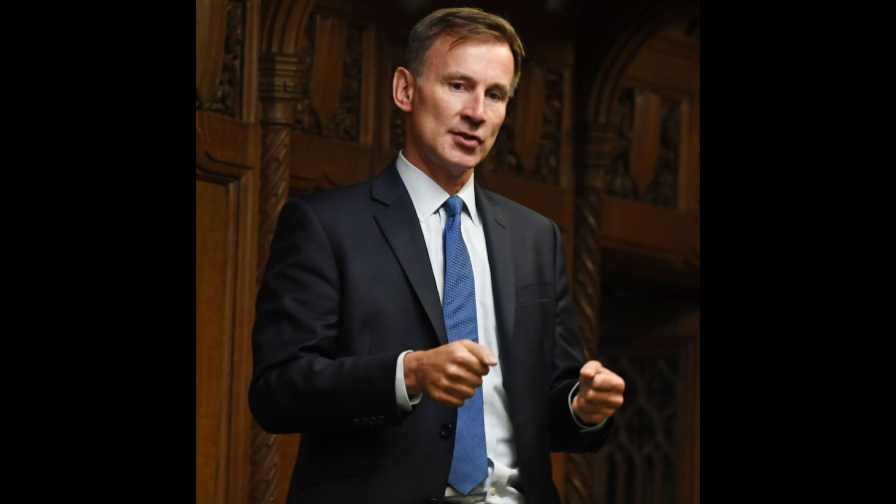Britain is now in recession and headed towards further shrinkage, the country's finance minister revealed on Thursday as he tabled his much-anticipated emergency budget with tax rises impacting millions.
Chancellor Jeremy Hunt tabled the Autumn Statement in the House of Commons, cheered on by British Prime Minister Rishi Sunak, to lay out the government's plans to get the economy back on track following the shockwaves of a rolled back mini-budget of predecessor Liz Truss in September.
The independent Office for Budget Responsibility (OBR) forecast published alongside the new budget pointed to higher energy prices driven by the Russia-Ukraine conflict as largely to blame for the downturn, with economic growth not expected until 2024.
"There is a global energy crisis, a global inflation crisis and a global economic crisis," said Hunt.
"But today with this plan for stability, growth and public services, we will face into the storm. We do so today with British resilience and British compassion. Because of the difficult decisions we take in our plan, we strengthen our public finances, bring down inflation and protect jobs," he said.
The UK Treasury said the plan outlined by him is a targeted package of support for the most vulnerable, to get debt and government borrowing down and to fight inflation in the face of unprecedented global pressures brought about by the pandemic and the Russia-Ukraine conflict. The total amount of savings from the budget has been costed at GBP 55 billion, through raising taxes and cutting government spending.
With a cut to the top-rate of income tax threshold and freezes on several other taxes, it means millions are set to pay more in taxes in the coming years.
The 45-pence higher rate of tax will now be payable from GBP 125,140, as opposed to the current GBP 150,000. The income tax personal allowance and higher rate thresholds are frozen for further two years, until April 2028.
The finance minister said he had "tried to be fair" in his decisions by asking those "with more to contribute more" and avoiding tax rises that "most damage growth".
He said the government would take "difficult decisions" to tackle inflation and promised his plan would lead to a "shallower downturn".
The minister said the office judged that the UK is already in a recession.
A downturn or recession is defined as when a country's economy shrinks for two three-month periods, or quarters, in a row. Typically, during a recession, companies make less money, pay falls and unemployment rises. This means the government receives less money in tax to use on public services.
Other key Autumn Statement announcements include increased benefits for those reliant on state funding in line with inflation, protection for pensions, and expansion of the windfall tax on large energy companies' profits. Electric car owners will also no longer be exempt from vehicle excise duty from April 2025.
Investment of an extra GBP 2.4 billion per year on schools and an increase in the National Health Service (NHS) budget by GBP 3.3 billion were among the other highlights. Alongside, adult social care will get GBP 1 billion more next year and GBP 1.7 billion in 2024, which the government said is a "record GBP 8 billion" package for the country’s health and social care system.
The National Living Wage, or the minimum wage to be paid to workers, will be increased from GBP 9.50 an hour for over-23s to GBP 10.42 from April next year.
The financial markets had a muted reaction to the announcements as the Opposition Labour Party accused the Conservative government of picking people’s pockets at a time when households are struggling with a cost of living crisis.
"The Conservatives have crashed our economy, given up on growth and sent inflation through the roof. As usual, it is ordinary working people who are paying the price," said Labour shadow chancellor Rachel Reeves.
"It is a familiar tune: every mortgage they raise, every cut they make, every tax they hike – the Conservatives are costing you," she said, alluding to the song ‘Every Breath You Take’.
Except for the headline, this story has not been edited by The Telegraph Online staff and has been published from a syndicated feed.










